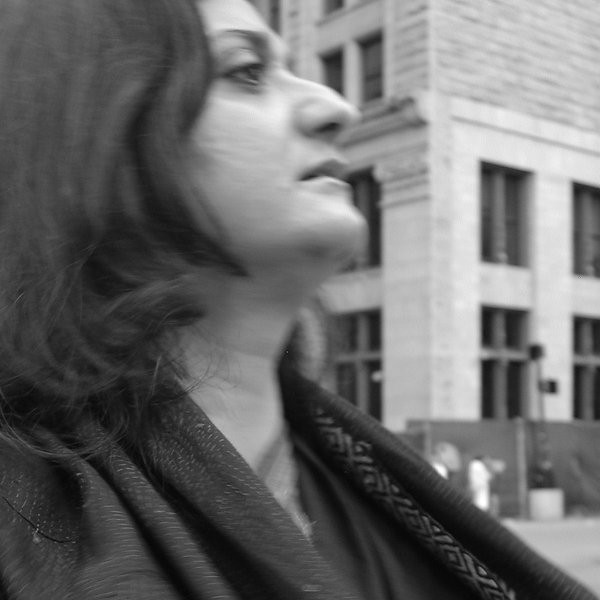Huma Dar

Lecturer
hdar@berkeley.edu
Huma Dar (PhD candidate, South and South East Asian Studies, UC Berkeley) will teach AAS 190: Muslin Writers in Spring 2012. Her work is focused on the intersections and co-formations of race, religion, class, caste, gender, sexuality, and national politics of South Asia, specifically analyzing the cinematic and literary representations of Muslims and Islam in India and the politics of reception of the same. Dar is a feature writer at PulseMedia.org, a collaborative political, activist, and academic weblog. She is a founding member and main organizer of the Townsend Center working group on Muslim Identities & Cultures, 2002-2010, and organized the feminist conference, Boundaries in Question on the theme of women and war, both at UC Berkeley. Dar has been active in the anti domestic violence movement, and was a member of the Executive Board of Directors of Narika, 2001-2006.
Current works include:
“The Unbearable Queerness of Being: Political Drag in Pakistani Cinema” to be presented at National Women’s Studies Association 2010 Conference:Feminist Transformations, at Atlanta, GA, November 10-13, 2011.
“Nudity of Resistance versus Nakedness of Power: The Cashmere/Kashmir that Refuses to Cover the Empire” to be presented in the panel, Imagining Kashmir: Power and Resistance in the Borderlands Part II, at the 40th Annual South Asia Conference at Madison, WI, October 22, 2011.
Of Love and Revolutions: A Lesson Un-Planned
By Huma Dar (Originally published here.)
I am reminded of, yet once again,
if I ever forgot,
occupied with, all over again,
a crazy, intense
conversation with my students,
some weeks ago.
As Ibn ‘Arabi’s Moses,
we heard out of Time:
“take off thy shoes” (20:12).
Spurred by our reading
of Tayeb Salih’s tumultuous Season
of Migration to the North,
“a moment of ecstasy is worth the whole of life,”
Frantz Fanon’s Black tender Skin,
and the Whiteness
of colonial Masks that pierce us,
Occupy Oakland,
whirling with, in, and around us,
and the imprisonment
of four-hundred at San Quentin
– that notorious jail
sprung straight
from Hollywood’s dungeons.
We talk of the ecstasy
that welds revolutions
and passionate love,
majaazi and haqeeqi,
earthly and divine,
that exquisite moment
of being beyond time
and space –
and therefore incommensurable,
totally “worth the whole of life,”
of being the whole universe
and of being
completely annihilated: fanaa,
of belonging to both azal:
eternity without beginning,
and abad:
eternity without end,
of losing our skin,
and feeling raw, chafed,
like Layla with Qais’s pain,
of being one with all life around us,
and feeling its pulse pound in our ears,
throb at our temples,
of a thousand hearts drumming
in our palms and soles,
toes, finger tips,
of eyes that dilate, and softly
touch the liquid rhythm
of a parallel universe, or many,
of bruised lips, tongue, throat,
getting ready for
kisses — tender and fierce,
of a Beloved long awaited.
Since eternity, and before.
The revolution of the pilgrim,
ihraamed-white,
here: Palestinian or Kashmiri,
there: Tibetan, Cherokee, Dalit
around the house of the Beloved,
a homeland veiled-black,
or around the heart-pure of the believer,
the ka’aba made flesh,
the revolution of an electron frenzied around its nucleus,
of planets majzoob collapsing around their suns,
of suns/sons around the black hole deep inside
the womb of the Milky Way,
caught in the warp of time-space –
who will deny the love that pulls the core of each revolution?
A love that undoes the self,
burns, destroys, and opens the heart
to receive the beloved –
fully, completely — and then
cracks it open to receive all:
the revolution at the core of love.
“A heart intact can only contain so much.
One that’s broken contains the universe.”
If creation created distance –
both time and space,
each created incessantly dies,
relentlessly revolves,
in a bid to out-whirl existence,
yearning for wasl:
communion.
Within each separation is
inherent the undoing of it,
the secret of wasl,
or at least an embryo of its desire.
And so too, within each indignity, each injustice,
of each disciplining prison, each punitive occupation –
which suffocate with arbitrary
rules of time and space:
tortured schedules and deadlines fatal,
too much work, or not enough,
untouchability and touchability unconsensual,
which roads to drive on, which ones to crawl upon,
a wall too high, or none where needed,
apartheid exclusion, unwelcome appropriation,
cards of identity and those of debit,
at check points, real and virtual,
curfews and crackdowns,
censored roads and messages blocked,
which radio station to listen to,
which salt to lick with abandon,
which salt to sprinkle over wounds,
and which salt is allowed to be
reclaimed by its earth.
Of the last, the “Himalayan” is the saltiest,
the most pink & prohibited.
Yet does not the body poetically rebel,
and well up with salty tears,
intractable, undomesticatable –
and one day will flood the plains of the oppressor.
“Certainly, we, too, shall witness
the day that has been pledged.”
Revolution arrives, whirling,
a hungry baby at her engorged breast,
opening the gates of paradise
at the soles of her hennaed feet,
to the needy, the tortured
the imprisoned, the enslaved
the orphan, the widow
the suffering, the broken
the loved, the unloved
the darwish, the exiled
the father whose son was encountered
the mother whose darling disappeared.
“With such tenderness
has your memory’s hand
caressed the cheek of my heart,
as if separation’s day is over –
although it’s morning still,
and here it is, the night of respite, of love.”
– for my students, past and present, and comrades-in-arms, all beloved